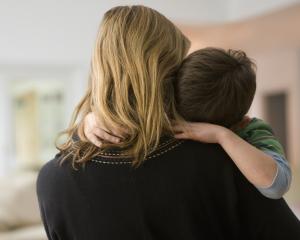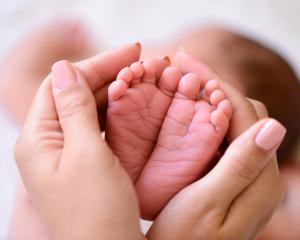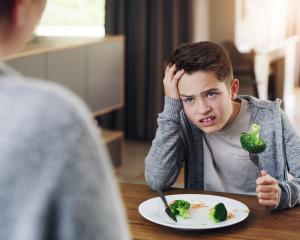

Mass shootings, Hong Kong and Moscow rioting, ill treatment of refugees at the United States' southern border, a violent robbery at an Auckland mall and climate and land protests have made the headlines on numerous occasions in the past few weeks.
Exposure to the range of shootings, robbery, violence and even threats of war can affect our youngsters. And it isn't restricted to the 6pm news. These things are the staple themes of popular television shows, video games and streaming services that broadcast age-inappropriate content 24 hours a day.
It's hard to shield them from what's going on when such events dominate the news media with graphic live news feeds. They can be deeply affected by distressing images of war-torn countries, mass shootings and bloodied refugee children.
Youngsters won't process what they hear and see in the same way as adults do. They'll often pick up on some aspect and focus on that. It might be the explosions, or the people running or bodies on the street, or the charging, armed, black-clad police, or the flowers left outside buildings. Around this they will build their own interpretation based on their limited life experience and understanding.
With the under 7-year-olds, it's best that they aren't exposed at all to the evening news bulletins, for example. However, knowledge of some events, such as the mosque shootings, are probably unavoidable. Take your cues from them and don't offer more information than they need. They need to know that they're safe, the family is safe and the police are dealing with the problem and are also working to keep everyone safe.
With 7 to 12-year-olds, the best approach is to let them talk about the event, answer questions, and discuss with them the accuracy of the information and the context to help them get things into perspective. Manage the viewing where you can and be aware that the older they are, the more they will understand what it all means. Acknowledge their feelings and let them know they're safe.
Anecdotally, the Prime Minister's approach to the Christchurch shootings was reassuring for youngsters.
Teenagers are bound to know about what's happening. Some will show avid interest, trying to make sense of it, be fully aware of its enormity and be thinking through `what now, what next?'. Others will appear not to acknowledge that anything has happened.
Discuss with them the events, the causes, the politics, what our government might need to do. If they want to lay flowers, sign a commiserations book, march in protest or support refugees caught up in the current crisis, support them. These can feel like positive responses.
Whatever the age, if they're disturbed by an event, give them a hug.












